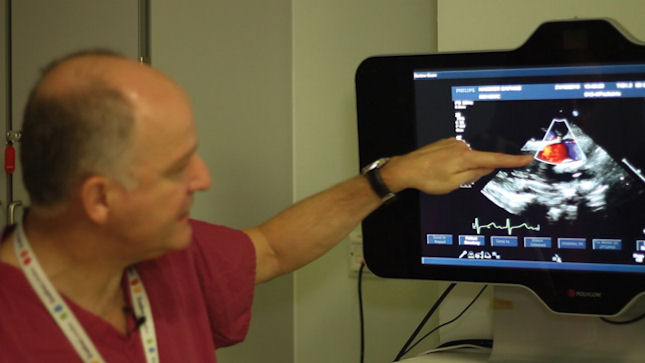30 January 2014

A remote HD video system used during cardiac operations is saving consultants and nursing staff at Evelina London Children’s Hospital thousands of hours a year, allowing them to treat more patients and provide a higher standard of care.
The hospital treats 100,000 children every year, including 6,000 for heart problems, and has earned an international reputation for cardiology, receiving patient referrals from around the world.
“Our cardiac surgeons are currently performing almost 500 operations per year,” says Dr John Simpson, consultant paediatric cardiologist. “For cardiologists to be physically present for all 500 is very challenging. We wanted a more efficient means to see the scans being performed in the operating theatre.”
The enterprise team at Evelina London worked with Polycom to apply video collaboration technology in the hospital’s operating theatres. The cardiology consultants can now share high-quality images and collaborate in real-time to make informed decisions more quickly while the patient is in theatre. This reduces operation times, especially the time patients spend under anaesthetic, a key factor in hastening post-op recovery.
Using a Polycom RealPresence Group 500 system and a Philips ultrasound cart enables theatre staff to transmit clear data and scan images in full HD to one of several review stations within the hospital. Using the Polycom personal video collaboration system, the remote on-service consultant can review the same scan data as the surgical team sees.
“Normally, if a senior cardiologist is needed to review scans in theatre, then the on-service consultant needs to scrub, change into theatre clothing and go into the operating theatre,” says Simpson. “This takes around 90 minutes and may compete with other clinical commitments on the ward, intensive care unit or talking to parents. The new remote system cuts the time needed to around five minutes.”
The new system ensures patients have quicker operations, diagnosis by the most senior doctors, and spend less time under anaesthetic. The system is also said to have saved an estimated 1,300 hours of consultants’ and surgeons’ time each year ?– with even more efficiencies gained in nursing services and support.
“Staffing costs have been significantly reduced and consultants can cut the time it takes to prepare to enter an operating theatre,” says Simpson. “The time they save can be used to help more sick children and their parents.”








